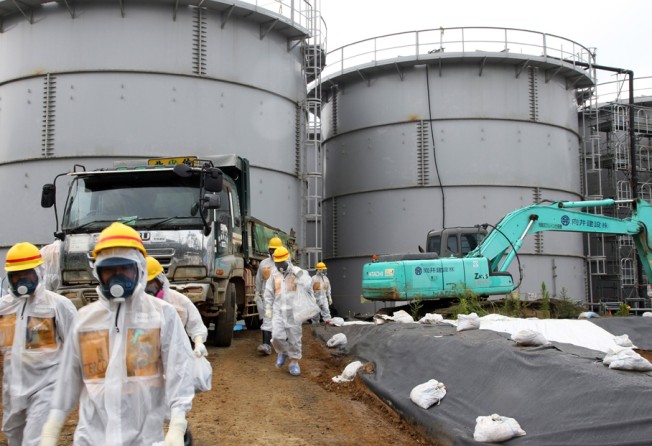Fukushima nuclear plant needs international expertise

Japan has struggled for more than two years to control the crippled Fukushima nuclear power plant. A fresh leak from a storage tank of water contaminated by dangerously high levels of radiation is the latest and most serious mishap since the facility was hit by an earthquake and tsunami. The operator, Tokyo Electric Power Company, Tepco, has not been transparent and has inadequately handled the growing crisis. Belatedly, it has finally acknowledged its failings and admitted outside help is needed.
Tepco's years of unwillingness to acknowledge problems and seek outside help has put at risk lives and ecosystems, not just in Fukushima, but around the Pacific. Power outages, contamination of workers and efforts to hide leaks are evidence enough of the company's failings. There is uncertainty about how much water that was used to cool the reactor cores and then stored in tanks has seeped into the soil and made its way into the nearby sea. Radioactivity has been detected in sea life far from the site, while the threat posed by the three melted-down reactors and a badly damaged fourth one now seems as serious as when the quake struck in March 2011.
The Foreign Ministry in Beijing rightly expressed shock about the latest leak. Tokyo and Tepco had implied all was well. Continued storage and drainage problems - and a recent report that removal of spent fuel rods in reactor No. 4 will be dangerous because the building they are housed in is structurally weak - make it plain that serious challenges remain. If there is a fire or explosion, or cleanup work does not go as hoped, Japan and the region, as well as the food chain, could face high levels of radiation. That has made the near-silence from officials and the nuclear industry incomprehensible.
Trusting the safety of Japanese produce, particularly seafood, is in the circumstances difficult. Tourists will be less likely to visit, and the South Korean airline Asiana has already announced it will cut flights to Fukushima in October because of the leaks. The watchdog Nuclear Regulation Authority has upgraded the severity of the crisis to one of the world's three major accidents involving nuclear plants and the worst since Chernobyl in the Ukraine in 1986.
With so much at stake, Tokyo has to be more forthcoming. There has to be utmost transparency and timely information. Every effort has to be made to prevent circumstances spinning out of control. International help, finally suggested last week by Zengo Aizawa, a Tepco vice-president, holds the key.